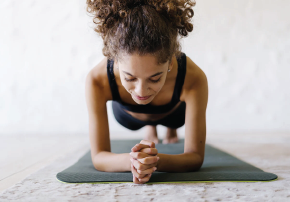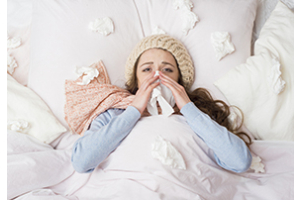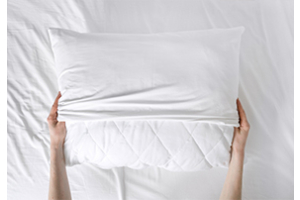What Is Sleep Hygiene?


What Is Sleep Hygiene?
It’s a great question, if only because it’s not something we always consider. Sleep hygiene refers to all the things we do during the day which have the potential to optimize (or ruin) our sleep. It’s an approach based on routine and discipline to ensure you get your very best sleep possible, every night. As sleep scientist Dr Dale Rae points out, “Sleep is not a passive thing that just happens to us. It’s an activity that we need to engage in and manage to our best advantage, every night.” Prioritising sleep to give yourself the best chance for healthy, restorative, sleep is a way of life. It’s a choice.
Make sleep hygiene a priority.
Your physical and mental health is yours to look after. Taking care of your sleep routine is the foundation. We discuss the all-important reasons for this in the #SleepForLife blog “What Happens To Your Brain and Body When You Sleep?”. In this blog we share some of the daily habits you can adopt so that you routinely get your best rest.
Three basic sleep hygiene tips.
Remember, think of sleep as an activity. It’s not just something we do as and when we become drowsy. In fact, pay attention to a daily pattern of when you usually start to tire. That’s your natural body clock winding down. We all have one. Apply these tips to avoid poor sleep hygiene and make the best use of your own body clock:
- Schedule your sleep for the same time every evening, guided by your body clock and when you naturally feel sleepy. Aim to keep to the same wake-up time as well.
- Prepare for sleep. Calm things down at least an hour ahead. You might do some light reading or listen to soft music. Choose whatever you find relaxing.
- Start turning the lights down once the sun has set. This, in turn, allows your body’s natural level of melatonin to increase, which signals “sleep time” to your body and helps you to feel sleepy. Remember, the light coming off your electronic devices is bright and contains a lot of blue light. Be sure to limit screen time after sunset, or apply the blue light filter to your devices to ensure screen use does not delay your sleep.
Daytime habits that improve sleep hygiene.
Lifestyle choices can also be made during your waking hours to help in regulating your body’s natural rhythm, and to avoid poor sleep hygiene:
Get some exposure to natural sunlight every day, especially in the mornings. It doesn’t matter whether it’s a bright sunny day or overcast. You’re simply helping your body to programme itself for daytime alertness.
Dedicate a half hour to an hour during the day for physical activity. Exercise does not have to be overly rigorous. Any cardiovascular activity like walking, running, cycling or swimming will get your heartrate up and afford your body the benefits of deep breathing.
Don’t smoke. Nicotine is a stimulating toxin that disrupts sleep. You really are doing your sleep hygiene a disservice.
If you drink alcohol, do so in moderation. Don’t drink too late in the evening before your bedtime approaches. The same goes for caffeine. Too much of either during the daytime can disrupt your sleep.
Try to be mindful of when, and how much, you eat. Lighter meals before bedtime are preferable.
Sleep hygiene and your bedroom.
Every room in a home has a purpose. The bedroom is your recharge chamber. You should probably have the mindset that this is the most important room for you and your family’s wellbeing. Investing in your health should always come first:
- Consider that you have the right level of comfort and support in your mattress. Everyone has their own sleep type. Take yours seriously. You can find out more at www.sleepscience.co.za or pop into your nearest Dial•a•Bed and take a quick sleep station test.
- Don’t compromise on good quality bedding. By that we don’t mean you need to buy the most luxurious or expensive linen. What you want is relaxing, soothing comfort. Look for duvets and fabrics with breathability to keep you cool.
- Arrange your bedroom environment for sleeping. There should be good airflow. Perhaps keep a side window open just a crack. If you have bright morning sunlight streaming in, consider blinds or heavy curtains to limit this. Of course, you need a solution that doesn’t cut off airflow.
- Avoid clutter and visual disturbance. A simpler, neater bedroom is subconsciously calming. Choose a colour scheme that relaxes you. Ideally, don’t have a TV or other electronic devices in your bedroom. Keep those activities to their own purposes – in your living room.
Find, and stick to, your sleep routine.
Is your sleeping pattern haphazard? Take things in hand. Find a routine that affords you a better quality of sleep. And a sharper, more alert waking day! #SleepForLife. Explore the benefits of getting into a routine cycle of good quality, restorative sleep. If you’re really serious about your health, you’ll put sleep first and schedule everything else around it. Of course, it’s not always easy and practical to keep to a strict regime. Life happens. Every now and then there will be disruptions. If there is a prolonged interruption to your normal sleeping hours, make allowances for that. Shift your sleep routine to get the best possible rest you can.
Great sleep hygiene starts at Dial•a•Bed.
The mattress you sleep on is critical to the enjoyment and productiveness of your waking hours. Find precisely the level of comfort and support you need at Dial•a•Bed. Afford the best your money can buy. And by that we mean the best to suit your budget. Take good care of your sleep hygiene and everything else follows. #SleepForLife. Why not pop in for a quick sleep station test at your nearest Dial•a•Bed? It’s not every day you think about the critical importance of your mattress. Maybe today is the day.





